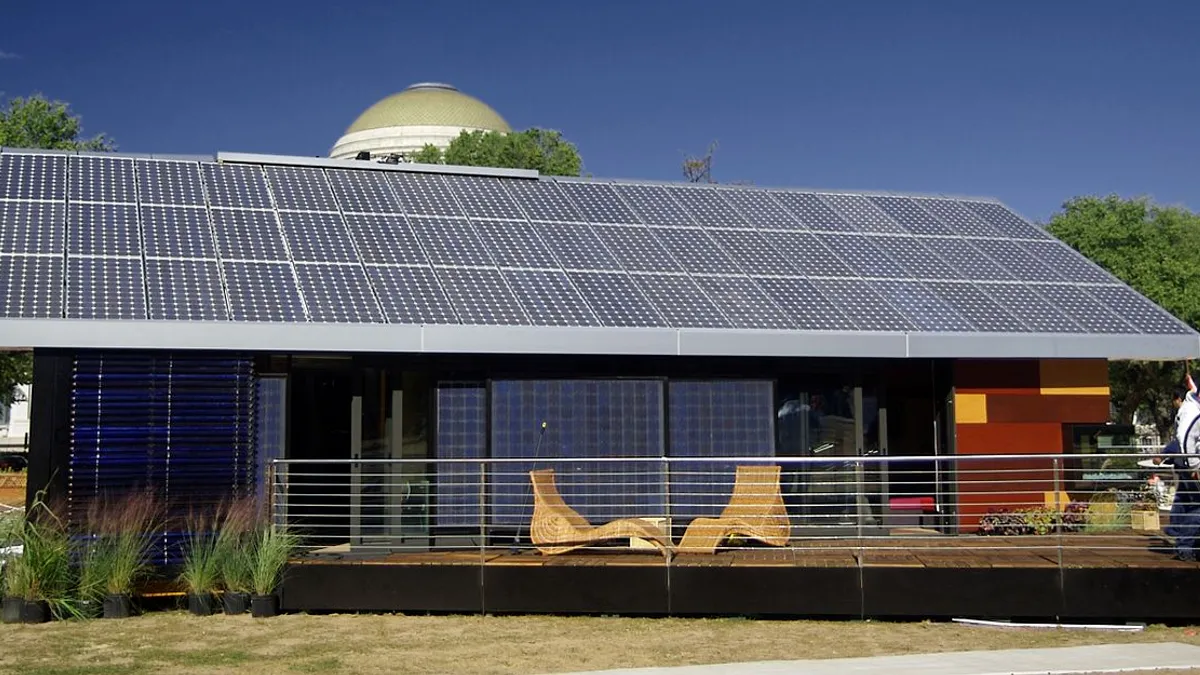Dive Brief:
- The utility industry has been waging a war on rooftop solar, The Washington Post reports, broadly seeking to impose net metering fees that would make distributed generation less valuable to customers and stem the tide of declining load growth.
- The Post cites documents from a 2012 Edison Electric Institute (EEI) board meeting that identified distributed generation as a potential thread to grid reliability and the utility business model.
- Rooftop solar could result in “declining retail sales,” a “loss of customers,” and even “potential obsolescence," the presentation said. “Industry must prepare an action plan to address the challenges.”
Dive Insight:
The Post's reporting centers around a presentation made to the EEI board by David Owens, executive vice president of business operations and regulatory affairs for the group.
"While the electric utility industry supports the desire of its customers to adopt distributed energy resources (DER), we also want to ensure that DERs are added to the system in a way that protects reliability, ensures the safety of the public and utility employees and is fair to all customers," Owens said in the presentation.
Quoted by the Post, Owens insists that EEI is "pro-solar" and utilities "are putting in more solar than any other industry.”
But Owens does take issue with the "unreasonable cost shifts" that occur with rooftop solar. “It’s not about profits; it’s about protecting customers,” Owens told the Post. "There is a grid that everyone relies on, and you have to pay for that grid and pay for that infrastructure.”
Over the last few years, the battle over these cost shifts has been taking place in state public utility commissions across the country. Dozens of regulatory commissions have considered net metering fees, meant to more accurately balance the cost of a complicated two-way utility grid capable of taking customer-generated power back onto the grid.















